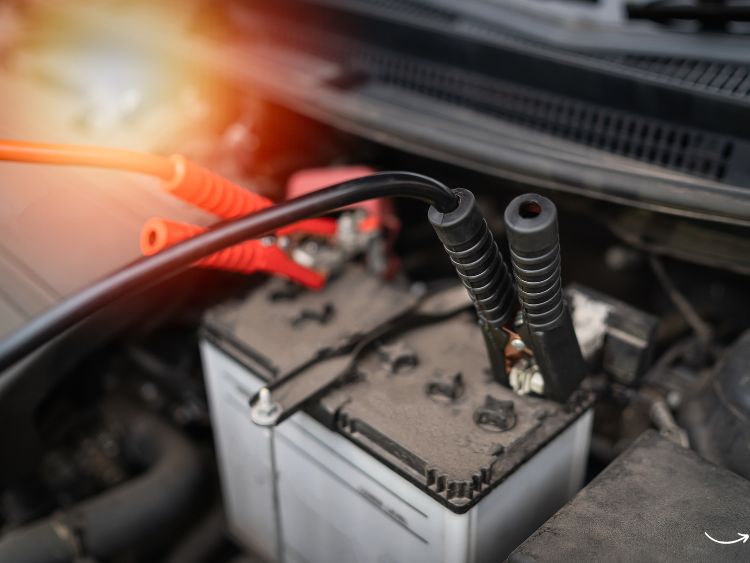Have you ever tried starting your car, only to be greeted by an eerie silence? Yep, we’ve all been there. Automotive replacement batteries are the unsung heroes of the road, ensuring your vehicle powers up every single time. But what happens when they start to fail? This guide will walk you through everything you need to know—from identifying the signs of a dying battery to selecting the perfect replacement. Let’s dive in, shall we?
What Are Automotive Replacement Batteries?
Automotive replacement batteries are essential components of a vehicle’s electrical system. They store and supply the energy needed to power your car’s engine, lights, and other electronics. When your current battery can no longer hold a charge or is too old to function efficiently, it’s time to replace it.
Types of Automotive Batteries
Not all car batteries are created equal. Here’s a breakdown of the main types:
- Lead-Acid Batteries:
- Most common and affordable.
- Perfect for standard vehicles.
- Absorbent Glass Mat (AGM) Batteries:
- Durable and efficient.
- Ideal for vehicles with high electrical demands.
- Lithium-Ion Batteries:
- Lightweight and long-lasting.
- Typically found in electric and hybrid vehicles.
Signs You Need a Replacement Battery
It’s not always obvious when your battery is on its last leg. Keep an eye out for these telltale signs:
- Slow Engine Crank: Takes forever for the engine to start.
- Dim Lights: Your headlights or dashboard lights are noticeably weaker.
- Frequent Jumpstarts: If you’re using jumper cables more than your phone charger, it’s time for a new battery.
- Dashboard Warning Light: Many modern vehicles have a battery-shaped indicator to alert you.
- Corrosion or Leaks: Visible buildup around the battery terminals is never a good sign.
How to Choose the Right Automotive Replacement Battery
Choosing the right battery can feel overwhelming with so many options out there. But don’t worry—you’ve got this!
1. Check Your Vehicle’s Manual
The manufacturer’s recommendations will point you in the right direction.
2. Consider Your Driving Needs
- Drive in extreme weather? Opt for a battery with a higher cold cranking amps (CCA) rating.
- Drive a hybrid or electric vehicle? A lithium-ion battery might be best.
3. Focus on Size and Compatibility
- Batteries come in various sizes (known as group sizes).
- Ensure it fits snugly in your car’s battery tray.
4. Compare Warranties
- Look for a battery with a solid warranty period—it’s a sign of reliability.
Top Tips for Maintaining Your Automotive Battery
Once you’ve invested in a replacement battery, keeping it in top shape is key. Here’s how:
- Regular Inspections: Check for corrosion, leaks, or loose connections.
- Clean Terminals: A simple baking soda solution can clear up corrosion.
- Avoid Short Trips: Frequent short drives don’t allow the battery to fully recharge.
- Turn Off Electronics: Don’t leave lights or the radio on when the engine’s off.
- Charge It Up: Invest in a quality battery charger for long periods of inactivity.
FAQs About Automotive Replacement Batteries
1. How long do automotive replacement batteries last?
Most car batteries last between 3 to 5 years, depending on usage and maintenance.
2. What’s the cost of a replacement battery?
Prices typically range from $50 to $300, varying based on type and brand.
3. Can I replace the battery myself?
Absolutely! With the right tools and guidance, replacing a car battery is straightforward.
4. Why is my new battery draining quickly?
Check for issues like a faulty alternator, parasitic drain, or improperly installed accessories.
5. Are premium batteries worth it?
If you have high electrical demands or live in extreme climates, spending a bit more can pay off in performance and longevity.
Summary
Automotive replacement batteries might not be glamorous, but they’re vital for your car’s functionality. By recognizing the signs of a failing battery, choosing the right replacement, and maintaining it properly, you can ensure your vehicle runs smoothly for years to come.
So, whether you’re dealing with a dead battery today or just planning ahead, this guide has you covered. Remember, a little knowledge goes a long way when it comes to automotive care!
Authoritative Links
- Battery care and maintenance guide: https://www.consumerreports.org/car-maintenance
- Types of car batteries explained: https://www.autobatteries.com/battery-basics
- Battery recycling information: https://www.epa.gov/recycle/used-lead-acid-batteries
